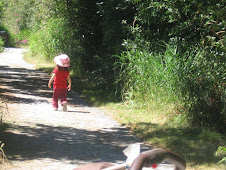Bonding with stepchildren is not easy. It should be set at the child's pace. Don't rush the child, give him/her time and be patient. But there are still many things a step-parent can do to bond with their stepchildren.
It will take time to get to know your stepchildren so that you can eventually love them – love takes time to grow. But you can still be affectionate, if not physically then by telling a child what a good job they did, how proud you are of them and thanking them for things they have done. Some children are not comfortable with physical affection but will thrive on the praise you give them. Let the child establish how much hands-on affection they are comfortable with. Give children space and time. Keep an open heart and realistic expectations.
It is important to give stepchildren time alone with their biological parent, allow them to keep their loyalties for their non-custodial biological parent and never criticize that parent. Respect the child's boundaries and don't appear to be disapproving – you can't force a child's affection. Let the child set the pace for your relationship. Often the relationship between the child and his biological parent will determine to a degree how well the step-parent will be able to bond.
Step-parents will likely bond with younger children more easily than with their older siblings. It has been suggested that children under five years of age may take a couple of years to adjust to a step-parent but older children could take the amount of time as the age they are, i.e.: a seven year old boy could take seven years to feel a connection with a step-parent. Teenagers may never bond; a friendship may be the best a step-parent will be able to expect. But with realistic expectations, this can be good too.
Be interested in what they're interested in, offer to assist them with their homework but don't push, share your talents and skills with your stepchildren if they are interested but again, don't insist. Do fun things together and treat all children equally, both biological and stepchildren. Each child should appear to be loved, honored and respected as much as the other one.
Some of the things that can cause problems with bonding is if there is step-sibling rivalry, if the step-parent feels rejected and resentment builds against the child, if the step-parent has unrealistic expectations or if there is very different parenting styles, especially if the step-parent is considerably stricter than the biological parent. Difficulties could also arise if there are problems between the biological parent and the step-parent. If the stepchildren realize their biological parent is not getting along with their step-parent, the reasoning of the child may be, why should they.
Try solo outings doing something the child would like to do. However, the child may choose not to do so but don't give up asking and don't feel rejected if the answer is no. Be loving but not intrusive. When there begins to be a shared history and a respect for personal differences, they are the first steps along the road to bonding.
Monday, September 19, 2011
Subscribe to:
Post Comments (Atom)





















































































No comments:
Post a Comment